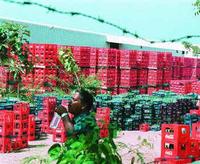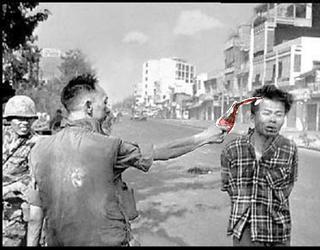Battle for Water

The struggle Begins...
Panchayat intervenes....
Perumatty Panchayat (the local governing body) withdrew the license granted to the company. The company approached the state government against the decision of this decision and the government ordered an investigation. The SPCB collected samples again (this time avoiding Paul Thatchil, the Chairman of the SPCB who conducted the previous test) and declared the water in the region and the sludge 'harmless' and 'safe' after a hastily conducted analysis. Consequently the government overruled the decision of the Panchayat and allowed the company to restart their operation.
To the Court...
The Coca Cola Company was in no mood to give up their largest bottling plant (which needs about 1400000 liters of water a day for cozy functioning) in India. They filed litigation in the Kerala High Court challenging the action of the panchayat. The Court after hearing deliberations from both the sides set up an expert committee to assess the ground realities. The committee constituted of experts from the SPCB and representatives of the company submitted their report on March,2005. On the basis of this report a division bench of the Kerla High Court (KHC), on April 7, 2005 quashed the single bench order and told the Panchayat to renew the license of the company.
Expert Committee?...
Many are skeptic about the expert committee and its working which was characterizedcterised by lack of transparancy. Moreover none from the Plachimada Iikiadardya samiti (Plachimada Solidarity Council)was included in it.
The Verdict and its implications...
The verdict of the Kerala High Court delivered on April 7, 2005 reads:
- a water based industry with a huge investment has a right to quench its thirst without inconveniencing others.
- a person has the right to extract water from his property unless it is prohibited by a statute. We hold that ordinarily a person has the right to draw water on reasonable limits without waiting for permission from the Panchayat or the government. This alone could be the law and the restriction an exception.
- Panchayat has no legal ownership about such private water resources.
- We cannot endorse the finding (of the single bench) that the company has no legal right to extract this wealth. If such restriction is to apply to a legal person (like the company) it may have apply to a natural person as well. Abstract principles cannot be the basis for the denial basic rights, unless it is curbed by valid legislation.
Narrow minded interpretation law against the poor and the weak epitomizes here in this ruling. The court deals with right of the company to quench its thirst and cozily and cunningly restrains from making a statement on the rights of the poor villagers. It considers the company just as another person and fails to see the fact that a legal person can in no way be equated to a natural person for whom water is basis of his very existence. Extracting 5 lakh litre of water a day cannot be seen as the right of a person for a normal man extracts not more than 5 or 6 buckets of water a day.
The court wonders why the single bench gave more importance to agriculture and I wonder why agriculture, the way of life for over 3000 local residents so inconsequential a subject for the watchdogs of the rule of the law. Is risking the life and property of 3000 people for mere 300 curbed on valid legislation? Let's forget the thousands badly affected by consuming this so called soft drinks. Forget not that the farmers of Wayanad found these products useful as pesticides. Yes! They found it better than anything our fiercely competitive markets can provide!

What Next?...
Perumatty Panchayat has filed a special leave petition ere the supreme court of India. At the same time the anti cola activists has made their stand unambiguously clear that they won't accept any verdict but which will close the company prmanently.
Yet Another Development...
The company afetr the April 7th order approached the Panchayat to renew their license but in vain.. So it sought the inetrvention of the High Court and the court on June 1,2005, came out with a verdict indicting the Panchayat. What more it even allowed the company to restart functioning even if the Panchayat refuse to issue the license within a span of two weeks.
The Struggle Contiues...
In the mean time Plachimada Struggle passed 1000 days. The day was celebrated with much zeal with the NGOs and political parties finding the occassion to be ideal to show their ' solidarity', with the common populace. Many don't know wether it is an occassion to celebrate or mourn. Is it an occassion to laugh? I don't know. some say it shows the strength of the movement (for it is not easy to wage a war against MNCs and survive for over three years). some others say it shows their weakness(for the company hasn't yet closed even after thousand days of arduous struggle).
 The Battle for Water continues.....
The Battle for Water continues.....
An Ultimate Victory?......
Do or government machinery have chutzpah to act against te interests of the MNCs? The obvious answer is 'No'. But in rare show of audacity The Kerala state Pollution Control Board (PCB) has ordered the stoppage production at the Plachimada Coca-Cola plant. The PCB in its August 19th order has sited the failure of the cimpany to comply with its reccomendations regarding the disposal of sludge as the reason for the latest development. The PCB found that the sludge from the company contained heavy metals like Cadmium in over400 times the permissible level .
THE HINDU reports on Aug. 20, 2005
PCB orders Coca-Cola to stop production
Special Correspondent
`Presence of cadmium was above permissible limits'
THIRUVANANTHAPURAM: The Kerala State Pollution Control Board on Friday ordered stoppage of production at the Palachimada unit of the Coca-Cola Company in Palakkad district for failure to comply with pollution control norms.
The Board observed that the presence of cadmium in its sludge was 400 to 600 times above the permissible limit. The company offered no explanation regarding the source of cadmium.
The company, it said, had also failed to fulfil satisfactorily the directive of the Monitoring Committee deputed by the Supreme Court to distribute water to the local population. It also did not carry out the directive, given by the Board and the Committee, to set up modern facilities for purifying the liquid effluents from the plant. The unit had been asked to set up treatment facilities that used reverse osmosis or similar process.
The company had been served show-cause notice by the Board on July 1. It was asked to explain why the renewal of consent to operate sought by the company should not be refused.
The Board said that the closure notice was sent to Hindustan Coca-Cola Beverages Private Limited on Friday, as explanations furnished by the company were not satisfactory. The order comes within days of the company resuming production on the strength of a High Court judgment in April lifting the conditional ban on its operation imposed by the Government.
The local administrative authority, Perumatty grama panchayat, had earlier refused licence to the company. However, on appeal, the Government allowed it to operate subject to conditions. The company then challenged the Government order successfully before the High Court. The Board noted that the application submitted to it by the company for renewing consent to operate was defective. The changes in raw materials, production process, products, waste generation and waste quality were not stated in the application. Cadmium was found in the range of 200 to 300 milligram a kg of the sludge from the effluent treatment plant. The observed concentration was much above the tolerance/permissible limit for hazardous wastes. This categorically established that cadmium bearing raw material or materials were used in the production process or effluent treatment. The company had informed the monitoring committee that the groundwater used by it was not contaminated. "Therefore, the source of cadmium is some other raw material used by you; but your application does not contain the particulars of the source of cadmium and is, therefore, incomplete," said the Board.
The chairman of the Board said in his order that its studies had shown that the groundwater in the vicinity was contaminated on account of the existence of cadmium in the effluent as well as the sludge. The company had capacity to store the effluent from only one day's production. Its discharge without proper treatment would pollute the groundwater.
He said that the poisoning caused from the hazardous waste containing cadmium to the well water of the nearby residents and the cadmium detected in the sludge generated by the company established the direct nexuses between the company and its poisoning capacity.
He rejected the contention of the company that the Member Secretary of the Board was prejudiced against the firm. No material had been furnished by the company to substantiate the alleged prejudice.
Referring to the order, Health Minister K. K. Ramachandran remarked in an official release that no factory would be allowed to function in a manner affecting the health of the people.
The Chairman said that the order was without prejudice to the liability of the company to supply drinking water to the affected population of the area, as ordered by the Board earlier.
Is it an ultimate victory for the poor poeple of the regiion? Considering the seemingly notorious past of the MNC, nothing can be taken for granded. But as the struggle of the Bolivian people demonstrated, nothing can triumph over the collective determination of the people. Let us hope that the will of the people prevail in this Battle for Existence.
dissent, protect, prevent, politics, India , kerla, Maoists, Maoism, Insurgency, extremism, violence, non- violence


